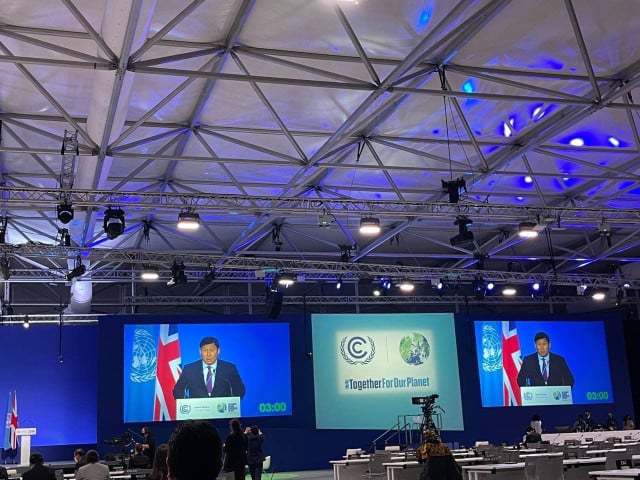Cambodia Strongly Committed to Global Climate efforts

- By Say Samal
- November 12, 2021 10:21 PM
In my speech at the 26th United Nations Climate Change Conference (COP 26) in Glasgow, the United Kingdom on November 10, as the head of the delegation, I already emphasized that the conference itself was an unprecedented gathering.
Unprecedented because of COVID-19. Unprecedented also because climate change is no longer hearsay.
Climate change, like pandemics, has no border, and our presence at the conference signified shared concerns and reassurance that, as world leaders, we are not losing sight of our shared responsibility for climate action.
I also want to highlight that despite being a low emission country, Cambodia is still strongly committed to doing our share in the global efforts. Full peace and political stability have permitted steady economic growth averaged over 7% per annum, thus allowing us to make increasing contributions.
We have tripled our climate budgets in the last five years, now around 2% of the GDP. We have commissioned over 400 MW of utility-scale solar energy, representing 15% of our energy mix.
We submitted the updated Nationally Determined Contributions (NDCS) targeting around 42% in emissions reduction by 2030. Our national total biomass is bigger than ever before. We are increasing our share of clean energy, not developing any new coal power plants, and not constructing any new hydropower dam along the Mekong River.
We are also formulating a Long-Term Strategy for Carbon Neutrality to promote activities that can deliver low carbon, climate-resilient, and inclusive growth. This also will help us seize the opportunities of the green economy– a major driver of growth, investment, and innovation in the coming decades.
In the meantime, I also acknowledge the progress made since the adoption of the Paris Climate Agreement. Updated NDCs have shown increased climate ambition. Large economies have set net-zero emissions targets while private and public investments in green technologies have also risen.
However, I have remained concerned that the level of international commitments falls far short of the 1.5°C target, which puts us on a dangerous path, particularly for the post-COVID recovery in the least Developed Countries (LDCs).
International climate finance is also far from the required scale, particularly for adaptation, and difficult to access for the most climate-vulnerable countries. Therefore, we call for developed countries to increase their contributions to financial mechanisms under the Convention, and to further facilitate direct access to the funds. Otherwise, promoting sustainable and climate-resilient infrastructures, disaster management capabilities, and low-carbon development in LDCs would barely be an empty talk.
I expect this conference to address these issues, so pledges become actions. We also hope the Paris Agreement implementation guidelines, including a strong set of rules for carbon markets under Article 6, will be finalized, to encourage forest protection and promote sustainable financing for adaptation and mitigation activities.
Now that we enter the crucial decade of action envisioned by the Paris Agreement, it is not a time for hesitation or half-measures, but ambition, decisiveness, and implementation.
16. I hope the conference could mark a new era for climate action, at the scale and speed needed for the well-being of our people.
Say Samal is Minister of Environment















